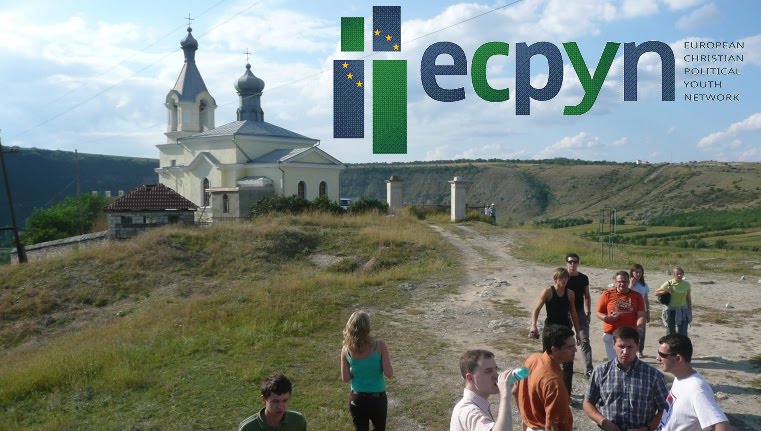The participants agreed that one of the most serious challenges of the future invite us all to reflect and cooperate, to commit both at national and European level, and to reevaluate the role of Christianity and in the same that the Christian Democratic ideas must further play an essential role.
I was really impressed by Youth of the Christian Democratic Party and the subject of our debate - Christian Democracy in
First of all, in our days, we talk about the economic and financial crisis. Secondly, the identity, social and political crisis. In all these crises, there is a spiritual and moral dimension. The changes we must make in our behavior, must be an answer to this profound crisis of values that is the cause of everything.
In this crisis we must mobilize all our forces and resources not only political but also moral and spiritual and to become a driving force of European construction and to promote responsability, social justice, respect for life, the central role of the family, solidarity, social market economy and civil society. And all these problems remain a major priority that guides our actions.
European politics deserves a new face, a revival based on democratic values. First of all, European politics means the responsible freedom, justice, solidarity, authentic Christian values. It is
And one of the fathers of the European Community, Robert Schuman, not only one of the greatest politicians ever known in "Democracy owes its existence to Christianity. It was born the day man was called to realize in his daily commitment the dignity of the human person in his individual freedom, in the respect of the rights of everyone, and in the practice of brotherly love towards all. Never, before Christ, had similar concepts been formulated."
Thus democracy is linked to Christianity, ideologically and chronologically at the same time.
 Christian values are universal and unifying values, and the message of the Christian Democrats do not want to be merely conservative, but one which is based on moral progress. Human dignity must be preserved. If we could continue this vision, than life in
Christian values are universal and unifying values, and the message of the Christian Democrats do not want to be merely conservative, but one which is based on moral progress. Human dignity must be preserved. If we could continue this vision, than life in
In the same time it’s really important to improve active participation, exchange best practices and promote mutual contacts between political youth organizations what can assume an important role to promote at national political level the Christian democratic ideas and to influence on internal political changes, if we discuss about young politicians.
This is the main goal of ECPYN, to create a young soul for the future of
Together we can build Europe stronger, more efficient and better able to promote its values, its principles and defend his vision in







